4th Grade Apps that Cover Miscellaneous Reading/Writing TEKS:
$1.99
$2.99
$2.99
FREE
$2.99
Apps & Online Tools by 4th Grade Standard:
4.1 Reading/Fluency.
Students read
grade-level text with fluency and comprehension. Students are expected to read
aloud grade-level stories with fluency (rate, accuracy, expression, appropriate
phrasing) and comprehension.
4.2 Reading/Vocabulary Development.
Students understand new vocabulary and use it when reading and writing.
$1.99
FREE
$4.99
$4.99
FREE
$3.99
FREE
$0.99
FREE
FREE
$26.99
English Idioms Illustrated
FREE
$2.99
FREE
FREE
$3.99
$3.99
FREE
Splat-o-Nym
$4.99
$0.99
Online Games:
- http://www.turtlediary.com/grade-4-games/ela-games.html
- http://www.spellingcity.com/synonyms.html
- http://www.vocabulary.co.il/fourth-grade-vocabulary-games/
- http://www.wordgametime.com/grade/4th-grade
- http://braincurls.com/a/analogix.html
- http://www.learnersdictionary.com/definition/kid
- http://www.wordcentral.com/
4.3 Reading/Comprehension of Literary Text/Theme and Genre.
Students analyze, make inferences and draw conclusions
about theme and genre in different cultural, historical, and contemporary
contexts and provide evidence from the text to support their understanding.
4.4 Reading/Comprehension of Literary Text/Poetry.
Students understand, make inferences and draw conclusions about
the structure and elements of poetry and provide evidence from text to support
their understanding. Students are expected to explain how the structural
elements of poetry (e.g., rhyme, meter, stanzas, line breaks) relate to form
(e.g., lyrical poetry, free verse).
4.5 Reading/Comprehension of Literary Text/Drama.
Students understand, make inferences and draw conclusions about the
structure and elements of drama and provide evidence from text to support their
understanding. Students are expected to describe the structural elements
particular to dramatic literature.
4.6 Reading/Comprehension of Literary Text/Fiction.
Students understand, make inferences and draw conclusions about
the structure and elements of fiction and provide evidence from text to support
their understanding.
$4.99
FREE
$4.99
FREE
$4.99
$3.99
$3.99
$4.99
$4.99
FREE
Online Games:
4.7 Reading/Comprehension of Literary Text/Literary Nonfiction.
Students understand, make inferences and draw
conclusions about the varied structural patterns and features of literary
nonfiction and provide evidence from text to support their understanding.
Students are expected to identify similarities and differences between the
events and characters' experiences in a fictional work and the actual events
and experiences described in an author's biography or autobiography.
$3.99
$0.99
FREE
FREE
$2.99
4.8 Reading/Comprehension of Literary Text/Sensory Language.
Students understand, make inferences and draw
conclusions about how an author's sensory language creates imagery in literary
text and provide evidence from text to support their understanding. Students
are expected to identify the author's use of similes and metaphors to produce
imagery.
4.9 Reading/Comprehension of Text/Independent Reading.
Students read independently for sustained periods of time and produce
evidence of their reading. Students are expected to read independently for a
sustained period of time and paraphrase what the reading was about, maintaining
meaning and logical order (e.g., generate a reading log or journal; participate
in book talks).
(School subscription needed)
FREE
FREE
$3.99
Online Games:
- Tumblebooks.com
4.10 Reading/Comprehension of Informational Text/Culture and History.
Students analyze, make inferences and
draw conclusions about the author's purpose in cultural, historical, and
contemporary contexts and provide evidence from the text to support their
understanding. Students are expected to explain the difference between a stated
and an implied purpose for an expository text.
FREE
$4.99
FREE
$4.99
$3.99
$3.99
$4.99
$11.99
$2.99
4.11 Reading/Comprehension of Informational Text/Expository Text.
Students analyze, make inferences and draw
conclusions about expository text and provide evidence from text to support
their understanding.
$3.99
$1.99
FREE
$4.99
FREE
FREE
FREE
$4.99
$2.99
$4.99
FREE
$3.99
$4.99
$4.99
$4.99
FREE
FREE
FREE
Online Games:
4.12 Reading/Comprehension of Informational Text/Persuasive Text.
Students analyze, make inferences and draw
conclusions about persuasive text and provide evidence from text to support
their analysis. Students are expected to explain how an author uses language to
present information to influence what the reader thinks or does.
4.13 Reading/Comprehension of Informational Text/Procedural Texts.
Students understand how to glean and use
information in procedural texts and documents.



FREE
FREE
FREE
FREE
FREE

FREE

FREE

School Subscription Necessary
4.14 Reading/Media Literacy.
Students
use comprehension skills to analyze how words, images, graphics, and sounds
work together in various forms to impact meaning. Students continue to apply
earlier standards with greater depth in increasingly more complex texts.
Online Games:
4.15 Writing/Writing Process.
Students
use elements of the writing process (planning, drafting, revising, editing, and
publishing) to compose text.
FREE
$4.99
FREE
FREE
4.16 Writing/Literary Texts.
Students write
literary texts to express their ideas and feelings about real or imagined
people, events, and ideas.

FREE
FREE

Online Games:
4.17 Writing.
Students write about their
own experiences. Students are expected to write about important personal
experiences.
$4.99
FREE
FREE
4.18 Writing/Expository and Procedural Texts.
Students write expository and procedural or work-related texts to
communicate ideas and information to specific audiences for specific purposes.
4.19 Writing/Persuasive Texts.
Students
write persuasive texts to influence the attitudes or actions of a specific
audience on specific issues. Students are expected to write persuasive essays
for appropriate audiences that establish a position and use supporting details.
$4.99
FREE
FREE

Fake Newspaper Maker Creator
FREE
4.20 Oral and Written Conventions/Conventions.
Students understand the function of and use the
conventions of academic language when speaking and writing. Students continue
to apply earlier standards with greater complexity.


Punctuation – End Marks
Online Games:
- http://www.abcya.com/parts_of_speech.htm
- http://www.abcya.com/parts_of_speech_quest.htm
- http://www.abcya.com/nouns_and_verbs.htm
- http://www.turtlediary.com/grade-4-games/ela-games.html
- https://www.ixl.com/ela/grade-4
- http://www.softschools.com/quizzes/grammar/
- http://www.softschools.com/quizzes/language_arts/complete_sentence_or_fragment/quiz1524.html
4.21 Oral and Written Conventions/Handwriting, Capitalization, and Punctuation.
Students write
legibly and use appropriate capitalization and punctuation conventions in their
compositions.



Punctuation – End Marks
- http://www.abcya.com/parts_of_speech.htm
- http://www.abcya.com/parts_of_speech_quest.htm
- http://www.abcya.com/nouns_and_verbs.htm
- http://www.turtlediary.com/grade-4-games/ela-games.html
- https://www.ixl.com/ela/grade-4
- http://www.softschools.com/quizzes/grammar/
- http://www.softschools.com/quizzes/language_arts/complete_sentence_or_fragment/quiz1524.html
4.23 Research/Research Plan.
Students
ask open-ended research questions and develop a plan for answering them.
- https://www.pebblegonext.com/ by Capstone
- Britannica School (school.eb.com)
- http://kids.britannica.com/
4.24 Research/Gathering Sources.
Students determine, locate, and explore the full range of relevant sources addressing a research question and systematically record the information they gather.
Students determine, locate, and explore the full range of relevant sources addressing a research question and systematically record the information they gather.
Online Games:
- Britannica School (school.eb.com)
- http://kids.britannica.com/
- https://www.pebblegonext.com/ by Capstone
4.26 Research/Organizing and Presenting Ideas.
Students organize and present their ideas and information according to
the purpose of the research and their audience. Students are expected to draw
conclusions through a brief written explanation and create a works-cited page
from notes, including the author, title, publisher, and publication year for
each source used.
4.27 Listening and Speaking/Listening.
Students use comprehension skills to listen attentively to others in formal and
informal settings. Students continue to apply earlier standards with greater
complexity.
4.28 Listening and Speaking/Speaking.
Students speak clearly and to the point, using the conventions of language.
Students continue to apply earlier standards with greater complexity. Students
are expected to express an opinion supported by accurate information, employing
eye contact, speaking rate, volume, and enunciation, and the conventions of
language to communicate ideas effectively.
FREE
FREE
FREE
$4.99 (FREE with iPhone/iPad purchase)
FREE
$4.99
FREE
4.29 Listening and Speaking/Teamwork.
Students work productively with others in teams. Students continue to apply
earlier standards with greater complexity. Students are expected to participate
in teacher- and student-led discussions by posing and answering questions with
appropriate detail and by providing suggestions that build upon the ideas of
others.
Heather Watson
Watson Works, LLC









































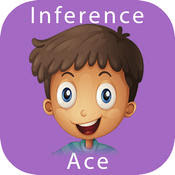
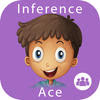


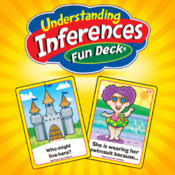











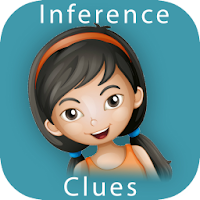














































































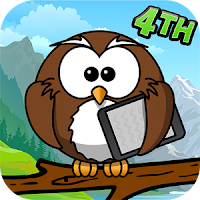

















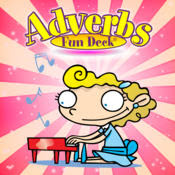








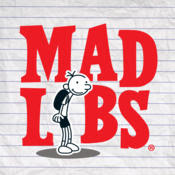












































No comments:
Post a Comment